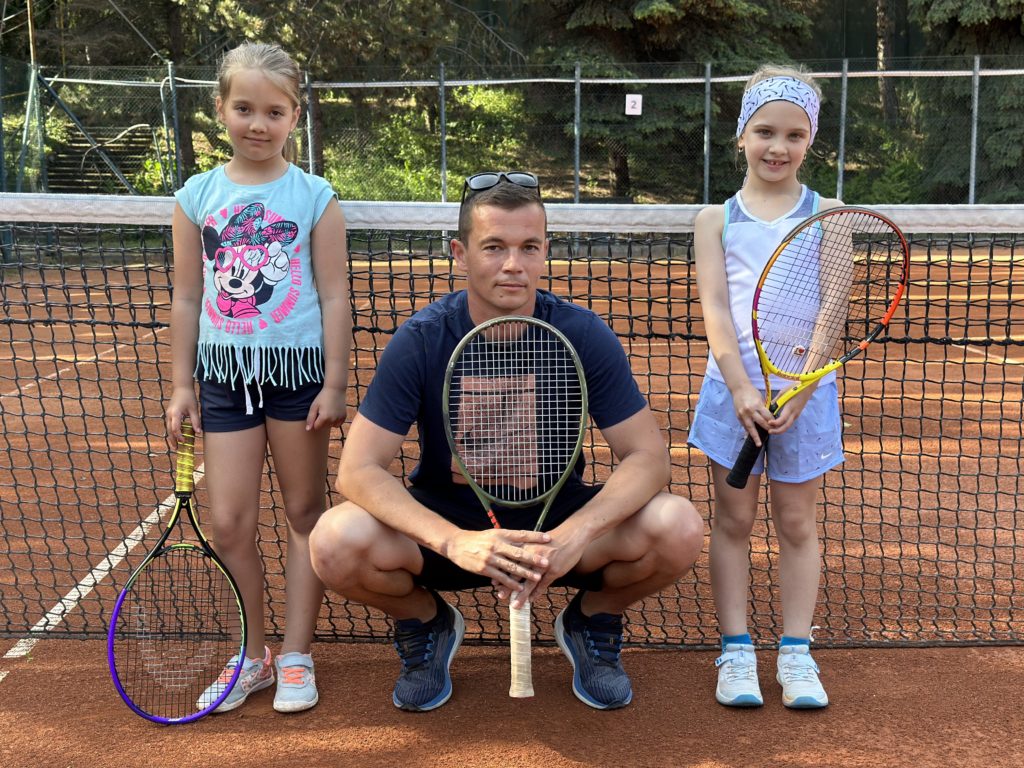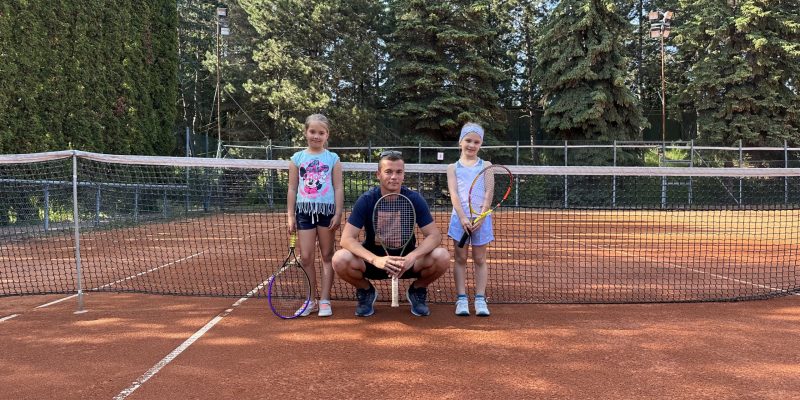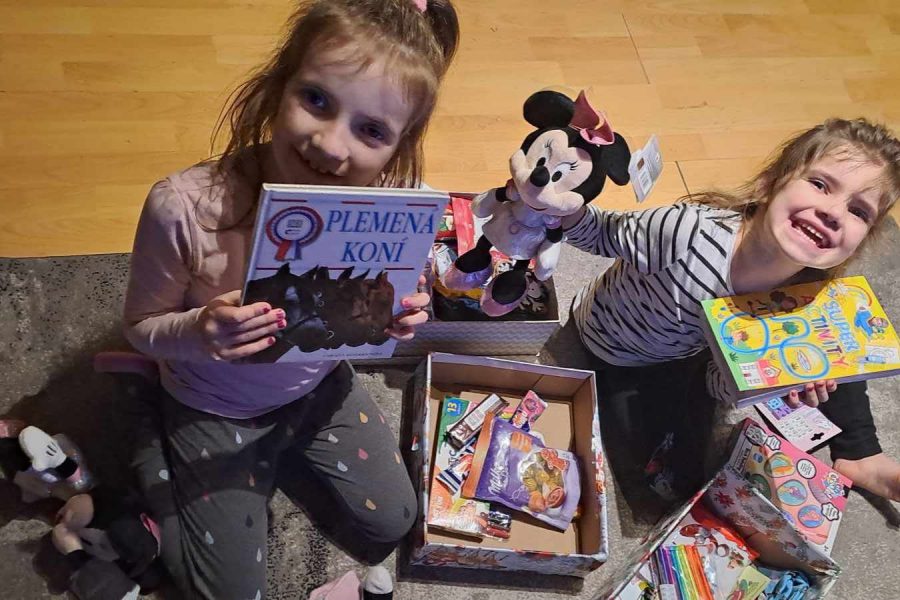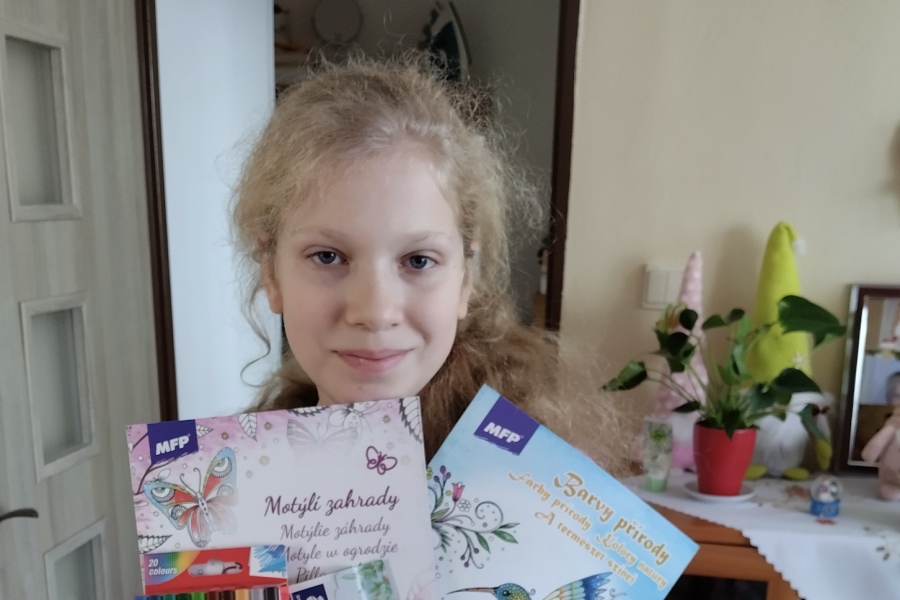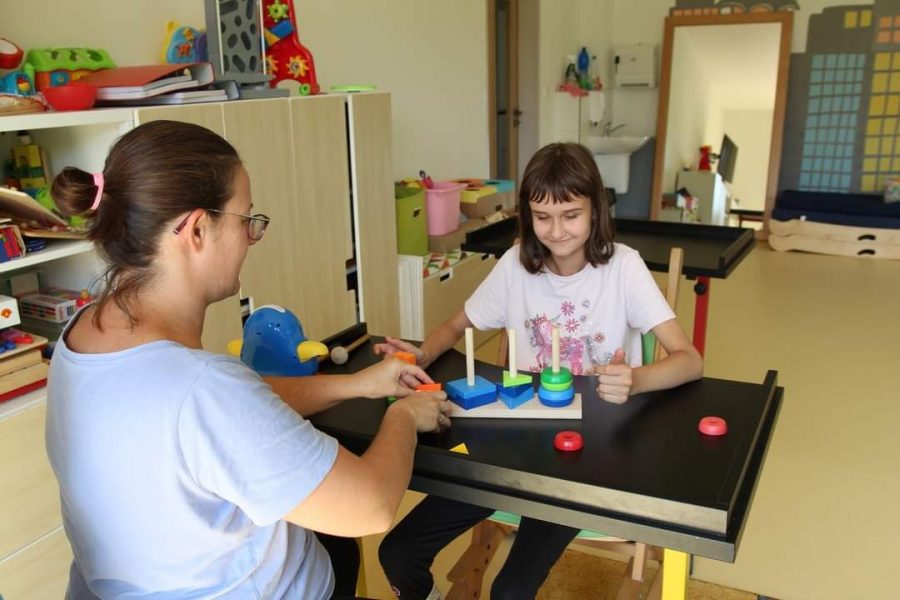Tomáš Ševcov is a tennis coach who has been involved with tennis since the age of 10. He began coaching children 15 years ago and has even had the opportunity to coach abroad, specifically in Cyprus. Throughout his coaching journey, he has gained extensive experience, which he applies daily in his work with children. Tomáš coaches Laura and Sofia, young, talented tennis players that Pierott has supported for the past two years. So, we decided to ask him about tennis, the level of interest among children, tennis conditions in Slovakia, and the differences in training children here versus abroad. Naturally, we also wanted to learn how Laura and Sofia are doing and how they are progressing.
What is the level of interest among children in tennis in Slovakia? Does it depend, for example, on the financial situation of the parents or whether they have a so-called sports background at home?
It depends on the parents and how they guide their children. It also depends on the cooperation between clubs and schools—whether they encourage children to play tennis or try to identify those with potential who want to develop their skills alongside their schoolwork. Children may receive basic training in school, which they can then build upon at the club’s courts. Interest is moderate; there were more children involved in the past. This is partly due to finances and the fact that parents are often too busy to provide the necessary support, such as taking their kids to tournaments or dedicating time to it.
Have you coached children outside of eastern Slovakia? If so, how did it differ?
I’ve coached children in the Tatras, Cyprus, Prešov, and Košice. Every place is different because tennis is an individual sport. So, the work with children and the communication with parents varies everywhere. In Cyprus, for example, I encountered a lazier attitude among both the children and the population compared to Slovakia. Comparing eastern and western Slovakia, it seems to me that kids from the east are a bit more well-behaved, while in the west, I dealt with more spoiled children, which made it harder to work with them.
Tennis is considered a financially demanding sport—do clubs in Slovakia provide financial assistance to talented children who want to train but whose parents can’t afford it?
I work independently and am not affiliated with any club, so I don’t offer this kind of support. We get help only through Pierott. The help that clubs offer to children varies; if they manage to secure funding from the Tennis Association, they can help by covering additional training costs or providing material support, such as buying rackets or balls.
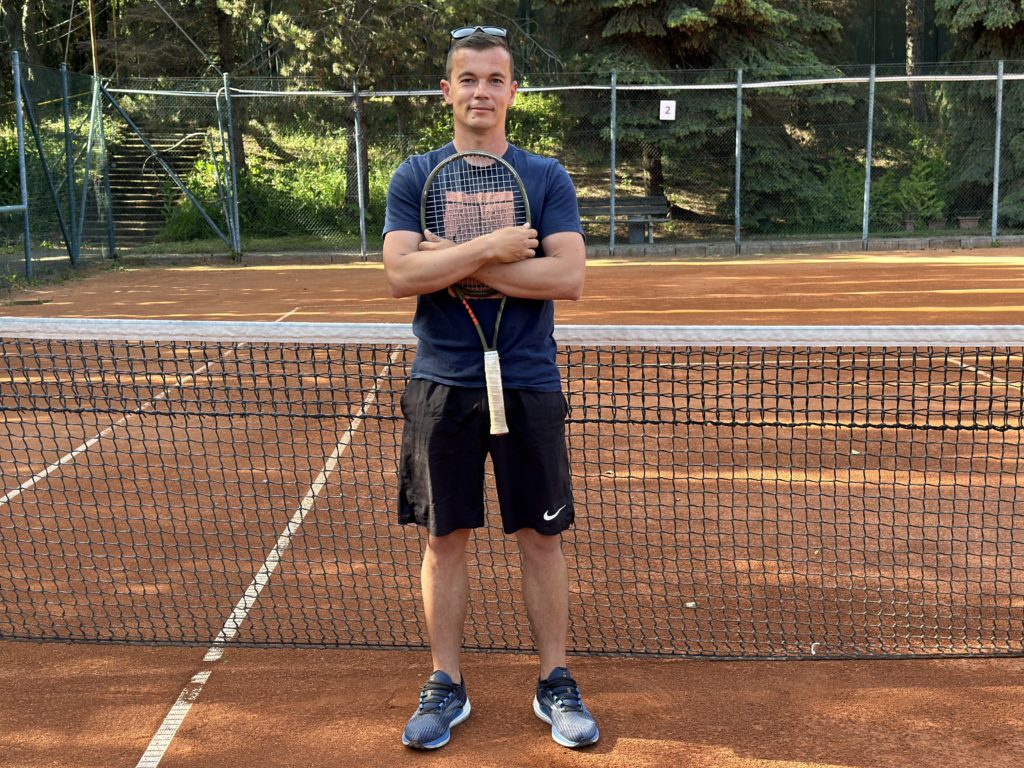
How long have you been working with Pierott, and what is your view of their efforts to support young sports talents?
I’ve been working with Pierott for about three years. With their financial support, we’ve held tennis camps in Košice and Prešov, where kids could try out their first training sessions for free. Even after the projects ended, their commitment to helping didn’t stop, and they continue to support two hardworking and talented girls, Sofia and Laura.
What are the further opportunities for children who want to pursue tennis professionally? Are there enough opportunities in Slovakia for them to succeed?
Most top players move to western Slovakia, to Bratislava, where the largest tennis center is located. This is one route, or they can study abroad, where they can receive scholarships and balance their studies with training. If a player has a high enough level, they may be interesting to a school, for example, in the USA. There is demand for that. It’s hard to break through if you don’t have the finances or sponsors, which is why many players choose to study abroad, allowing them to gain scholarships. Finding sponsors here is difficult. Businesspeople and companies aren’t motivated to sponsor players in our country.
How do you view the overall state of tennis in Slovakia? What are the conditions for players to develop and improve?
The conditions are reasonable. There’s currently a National Tennis Center being built in Košice, so from next year, the conditions will be even better, and children from all over eastern Slovakia will have a space to train in Košice.
How long have you been training Laura and Sofia, and how do you perceive their growth—athletic/physical/performance-wise, and mentally/personally?
I’ve been training them for two years. During this time, they’ve learned the basics well, they can rally, and they’re starting to try their first matches. Their concentration is improving, but we need to work on their movement and continue making progress. They’re currently 8 years old and will soon start playing in their first matches. I started playing at 10, so they’re ahead of me ☺.
What influences their progress?
Their effort—how much they’re willing to sacrifice, how much they can endure and focus. It’s up to them. I can only help them to become better.
What is good motivation for them?
Definitely, the matches will be the best motivation. That’s when we’ll see how competitive they are. Sometimes a child might not be competitive, and in that case, we need to work on unlocking their mind and nurturing competitiveness within them, as it’s essential for success.
Does healthy rivalry help them as well?
Definitely, yes. They see each other, they see other players, and they try to copy certain things, “borrow” techniques from better players. At their age, group training is better, even though tennis is an individual sport. In group training, competitiveness develops, and that’s necessary for further growth as a tennis player.
In your opinion, do they have the potential to pursue tennis professionally in the future if they choose?
Absolutely, although it’s difficult to judge at their age. They still have many years ahead of them before they reach the age of 15-16, when they can start taking it professionally. At that point, they’ll need to balance it with school so that neither studies nor training are neglected. But they are talented, so there is potential.
What steps do you think need to be taken to improve conditions for young, promising athletes and to increase children’s interest in tennis?
We need to promote tennis wherever possible, find sponsors, and engage people. The wider the public involvement, the more children will take up the sport, increasing the chances of them motivating each other, improving, and pushing one another to a higher level. That healthy competition must exist. If there are too few children, nothing big can develop.
Additional thoughts from Tomáš Ševcov:
“I am grateful to Pierott for all the smiling children we had the opportunity to meet together at training sessions. In Slovakia, however, we have many smart and talented athletes who would need support like Laura and Sofia, and that is why I believe that there will be other people like Pierott who will find ways to help children fulfill their childhood dreams.”
